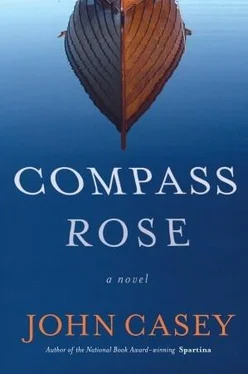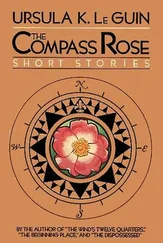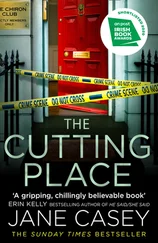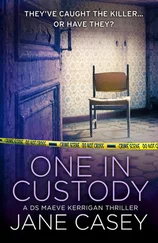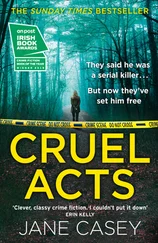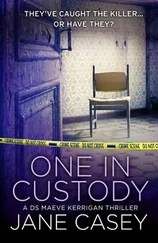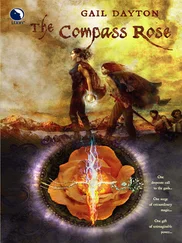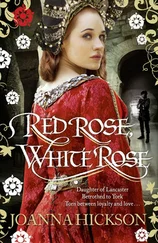After a few moments Miss Perry opened her eyes. “Rose,” she said. “It is Rose. Does Rose know how to swim?”
Elsie said, “Yes.”
Miss Perry said, “I remember Charlie and Tom jumping in. Were you there that day?”
“No, but you described it very clearly.”
“Ah,” Miss Perry said. She smiled her lopsided smile. “I had a cousin who in his old age began to repeat himself. He would list all the mountains in New England that he’d climbed. I learned to say, ‘Yes, Chocorua — I remember how vividly you described it. I feel as if I’ve climbed it myself.’ Would you please help me upstairs? Actual conversations are more tiring than the conversations I have in my dreams.”
The parts of Elsie’s life that she saw as her own history and geography seemed to her so much the same for such a long time that she couldn’t tell the years apart. Rose growing. Miss Perry reviving, declining, reviving. Elsie quarreled with Jack about different subjects, but it was the same quarrel. She was still undone when she would unexpectedly run into Dick. One time was so sharp that it kept jumping out of sequence — it came back to her as if it had just happened, leapfrogging what was in fact a longer and longer span of time. She was down by the docks; Spartina was in port. Dick was splicing two cables, weaving two starbursts of metal strands into a slowly lengthening joint, a bit thicker than either cable but neatly uniform and hard. Elsie watched the splice grow, watched Dick’s forearms and hands with the kind of absorption she usually felt only when watching something wild. It was when she turned away that she felt desire — not a sexual desire but a desire to sense again his inmost savor. It was such a sharp desire she felt hollowed out by it, as if by fear.
Another intensity that had an eccentric orbit in her memory — she couldn’t tell if it happened before or after she saw Dick working on the cable splice — was the red squirrel. She was sitting in the undergrowth on the edge of a clearing. She heard the chiming note of a red squirrel, so different from the chatter of a gray squirrel. She tried to imitate the sound, first by whistling, then by humming very high. She came closest when she half clucked, half whistled inward. The red squirrel appeared halfway down a maple tree. It was small even for a red squirrel, probably young. She called again. It looked around, came down to the ground, apparently didn’t see her. She called again and it hopped twice, two small arcs toward her. It turned its head, twitched its ears, hopped again. It was within six feet of her boots when she felt the air move. There was a blur and then a perfect stillness. A hawk folded its wings. The red squirrel was turned on its side, motionless in the talons. The hawk turned its head and looked into Elsie’s eyes. She was held absolutely still as the hawk’s stare moved through her. Then the hawk was gone.
By the time she got to her feet what had happened in front of her eyes was in fragments. She tried to reassemble it then, and many times later. She never got it whole. It didn’t matter.
Sometimes she felt guilt, sometimes not. She could place it in a season only because she’d gone over to the maple tree and seen where the red squirrel had gnawed a bare patch on which some maple sap had crystallized. So probably March. She couldn’t remember if she’d been cold. She figured it was most likely a broad-winged hawk, but that was only a guess — larger hawks would have had trouble stooping into such a small clearing. She was a terrible witness — no details about wingspan or plumage — she couldn’t even say whether the talons had pierced the squirrel or clutched it. What she did have was an instant of intimacy that was both ferocious and serene.
As she had with Dick.
A milder exchange with Johnny Bienvenue, not one that plummeted so vividly through her, turned out in retrospect to be the start of a gradual rearrangement of her life. It was one of the rare occasions when they were in her bed. Rose was spending the night at May’s house, and Mary was at Sawtooth. Elsie was completely relaxed, happy to lie there, waiting until Johnny got up to make them tea. He rolled onto his side, kissed her shoulder, and sat up. He said, “Have you ever thought of having another child?”
She was in the middle of a yawn. On the exhale she said, comfortably, “God, no. It’s taking everything I have to raise this one.”
Johnny kept moving, stood up, and said, “You want something to eat?”
“Just tea.”
It was a few days before she replayed the question and answer in her head. She drew a sharp breath, partly at how obtuse she’d been, partly in sympathy for Johnny. But in the end the only thing she felt bad about was the truth coming out on a languorous postcoital yawn.
They kept seeing each other, usually every other week. She did two things consciously. She asked him more questions about his work, and she got him to be the one to start their lovemaking. He’d been pleasantly surprised in the beginning and even after several years, that she would be the one. His experience wasn’t nearly as varied as hers, and he’d been surprised to find that a woman could have been thinking about him that way. During what she was pretty sure was the slow uncoupling of their love life, she didn’t want him to think he’d been — she picked a lawyer’s word he’d taught her — fungible. A fungible partner, fungible body, fungible pleasure.
She found herself wondering whether she’d prepared him for the marriage he was bound to have — in fact, needed for his career — or if the habit of secret trysts might have spoiled him for it.
In the long run, she was glad that the truth about her not wanting another child had come out, because it precluded her having to say anything further — for example, that the idea of being a politician’s wife set off an attack of claustrophobia in her.
All of this was a diffuse and intermittent part of her life. In fact, the drifting apart, which she’d thought would take a few months, went on for more than a year.
Mary Scanlon, Elsie’s only confidante about Johnny, said, “The pair of you are making more farewell appearances than Nellie Melba.”
Elsie said, “Nellie Melba?”
“An old opera singer. You can substitute Cher.”
What Elsie didn’t tell Mary was that it was precisely because these were farewell performances that they were (a) so sentimentally as well as erotically charged that it would be a shame not to have another, or (b) not quite the right note to end on, so it would still be a shame.
There was some artifice on Elsie’s part. She often said, “Let’s just have a nice lunch and take a walk.” Sometimes it was just that, but it was pretty much up to Elsie. She genuinely liked talking with him about his problem cases, whether they presented perplexities of law or politics, but she also knew she had the geisha-like ability to convert his pleasure at being listened to into physical desire. One time she squeezed his wide paw of a hand and said, “Wait. Sorry. My brain just reached overload.” She laughed. She looked at him two seconds longer than called for. She turned her head and lowered her eyes. She waited while the air between them grew thicker. She put her fingertips to her forehead and, mixing the words with a soft breath, said, “Do you have to get back to work right away?”
She told herself that it wasn’t so much artifice as method acting. She wasn’t just indicating a feeling, she was experiencing the feeling, or at least using a remembered feeling to set off a present feeling. Because she saw Johnny infrequently, it took her a long time to see that she was splitting him into two people: One, a guy she really liked, who liked her, who in his turn listened to her, understood and sympathized with her, but, compared to her, was wholehearted and innocent. Two, a smart, powerful man whom she could seduce as if he were someone from her red-dress days, with that extra whiff of pleasure she got from turning an upstanding citizen into a bad boy.
Читать дальше
